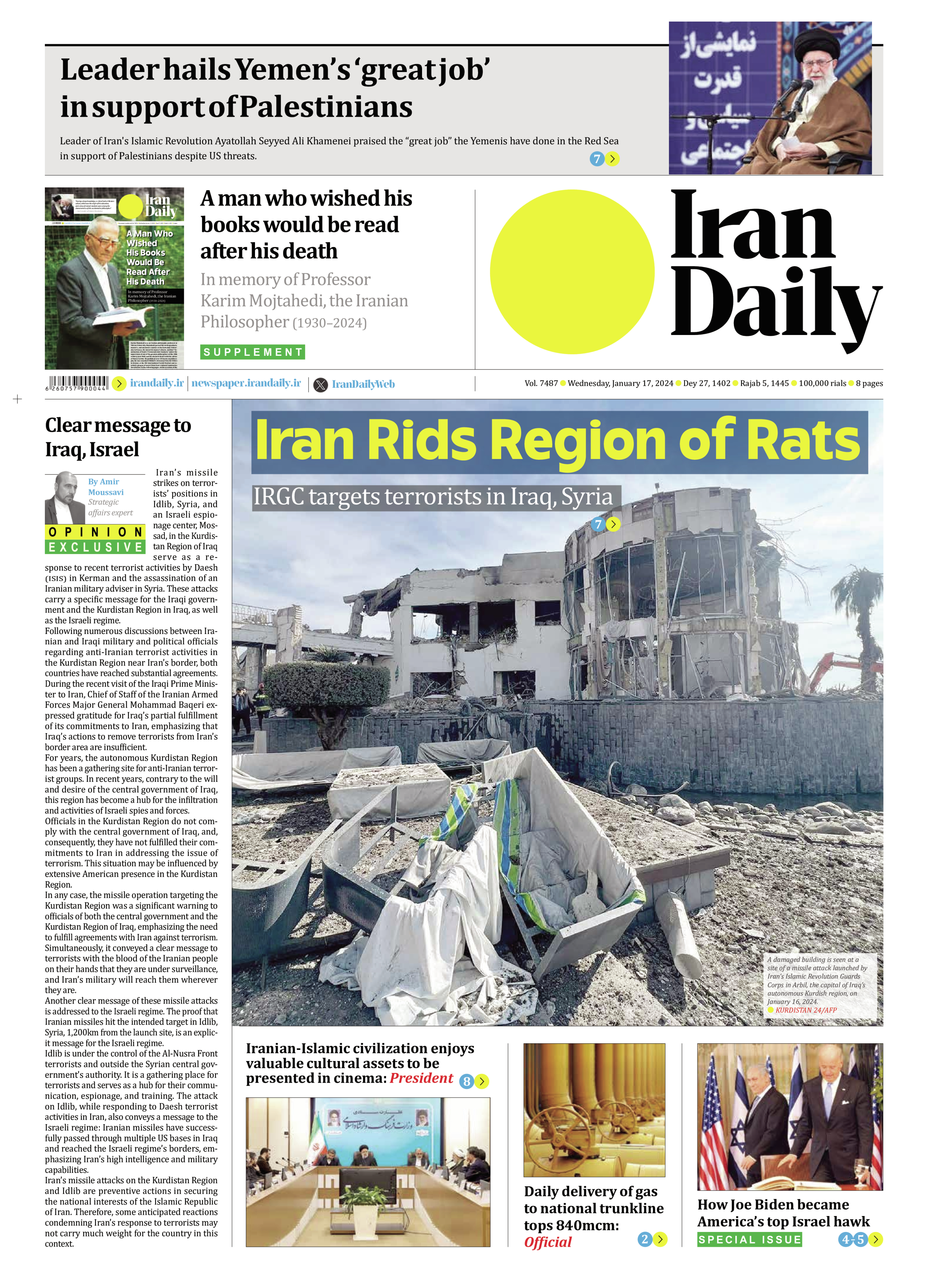
Clear message to Iraq, Israel
By Amir Moussavi
Strategic affairs expert
Iran’s missile strikes on terrorists’ positions in Idlib, Syria, and an Israeli espionage center, Mossad, in the Kurdistan Region of Iraq serve as a response to recent terrorist activities by Daesh (ISIS) in Kerman and the assassination of an Iranian military adviser in Syria. These attacks carry a specific message for the Iraqi government and the Kurdistan Region in Iraq, as well as the Israeli regime.
Following numerous discussions between Iranian and Iraqi military and political officials regarding anti-Iranian terrorist activities in the Kurdistan Region near Iran’s border, both countries have reached substantial agreements. During the recent visit of the Iraqi Prime Minister to Iran, Chief of Staff of the Iranian Armed Forces Major General Mohammad Baqeri expressed gratitude for Iraq’s partial fulfillment of its commitments to Iran, emphasizing that Iraq’s actions to remove terrorists from Iran’s border area are insufficient.
For years, the autonomous Kurdistan Region has been a gathering site for anti-Iranian terrorist groups. In recent years, contrary to the will and desire of the central government of Iraq, this region has become a hub for the infiltration and activities of Israeli spies and forces.
Officials in the Kurdistan Region do not comply with the central government of Iraq, and, consequently, they have not fulfilled their commitments to Iran in addressing the issue of terrorism. This situation may be influenced by extensive American presence in the Kurdistan Region.
In any case, the missile operation targeting the Kurdistan Region was a significant warning to officials of both the central government and the Kurdistan Region of Iraq, emphasizing the need to fulfill agreements with Iran against terrorism.
Simultaneously, it conveyed a clear message to terrorists with the blood of the Iranian people on their hands that they are under surveillance, and Iran’s military will reach them wherever they are.
Another clear message of these missile attacks is addressed to the Israeli regime. The proof that Iranian missiles hit the intended target in Idlib, Syria, 1,200km from the launch site, is an explicit message for the Israeli regime.
Idlib is under the control of the Al-Nusra Front terrorists and outside the Syrian central government’s authority. It is a gathering place for terrorists and serves as a hub for their communication, espionage, and training. The attack on Idlib, while responding to Daesh terrorist activities in Iran, also conveys a message to the Israeli regime: Iranian missiles have successfully passed through multiple US bases in Iraq and reached the Israeli regime’s borders, emphasizing Iran’s high intelligence and military capabilities.
Iran’s missile attacks on the Kurdistan Region and Idlib are preventive actions in securing the national interests of the Islamic Republic of Iran. Therefore, some anticipated reactions condemning Iran’s response to terrorists may not carry much weight for the country in this context.







